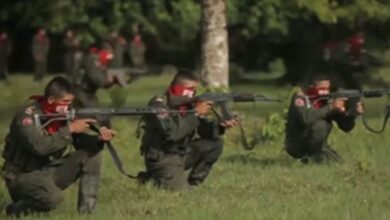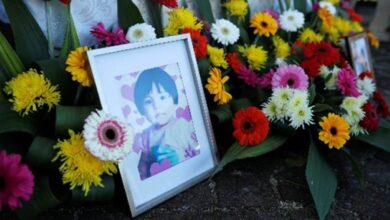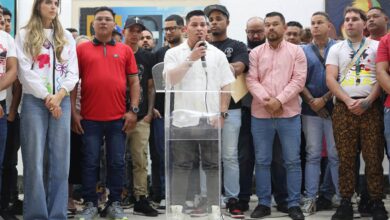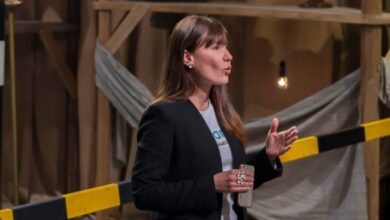El Salvador’s Jesuit Case Is Stuck Again, and Time Is Becoming an Accomplice
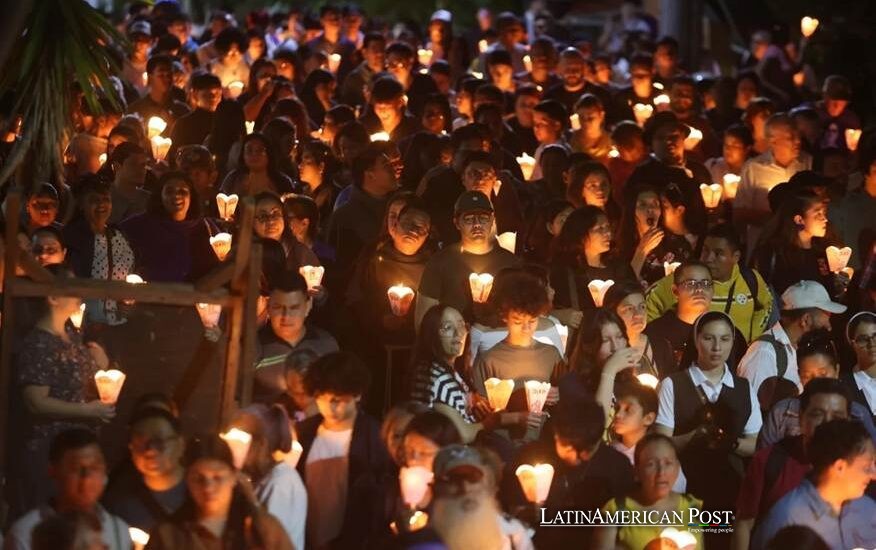
Thirty-six years after soldiers murdered six Jesuit priests and two women at San Salvador’s UCA, the drive to prosecute the alleged intellectual authors has gone eerily quiet. Eleven defendants await trial, but a year of silence is testing El Salvador’s promise of accountability.
Martyrs Remembered, a Champion of Justice, Missed
Just before dawn on November 16, 1989, soldiers from an elite Salvadoran Army unit walked onto the campus of the Universidad Centroamericana “José Simeón Cañas,” better known as UCA. By the time they left, the university’s lawn was soaked in blood. Six Jesuit priests lay dead: five Spaniards, Ignacio Ellacuría, Segundo Montes, Ignacio Martín-Baró, Amando López, and Juan Ramón Moreno, and one Salvadoran, Joaquín López. Two women, UCA employee Elba Ramos and her 16-year-old daughter, Celina, were killed with them.
The murders, carried out at the height of El Salvador’s civil war, became one of the conflict’s defining atrocities. The war would eventually claim some 75,000 lives and leave up to 10,000 people disappeared; the UCA killings crystallized a truth many already knew, that the war was also a campaign to silence those who sided with people with low incomes and dared to speak against impunity. The victims became known as the “Mártires de la UCA,” revered as moral beacons who argued that defending the marginalized was not politics, but faith in action.
This November, the candles and Masses marking the anniversary carried a sharper edge of absence. José María “Chema” Tojeira, the Spanish Jesuit who became the most persistent public champion of the case, died in early September. From the morning of the crime onward, Tojeira pressed prosecutors, knocked on foreign chancery doors, and kept the massacre on national and international agendas. His tenacity helped reopen investigations after years of legal dead ends. His passing, as EFE highlighted in its coverage, leaves a void at the very moment the case sits poised, on paper, to finally confront those accused of ordering the murders, not just those who pulled the triggers.
A Reopened Case, Then a Year of Silence
On November 18, 2024, El Salvador seemed ready to turn a corner. San Salvador’s Second Court of Instruction announced that eleven alleged intellectual authors would be sent to trial on charges including murder, procedural fraud, and cover-up, EFE reported. Among them was former president Alfredo Cristiani, who governed from 1989 to 1994, when the peace accords were signed. The court also ordered the arrest of five defendants who had failed to appear, including Cristiani.
Then, almost nothing.
For a year, the public docket has barely moved. No major hearings. No visible steps to advance toward trial. The quiet is especially jarring given the case’s tortured backstory. Legal maneuvers by defense lawyers had stalled the investigation for years. In 2020, the Supreme Court’s Criminal Chamber closed the file entirely. In 2022, the Constitutional Chamber granted an amparo that reopened the case, according to EFE. Each swing of the judicial pendulum raised hopes, only to dash them.
Now, observers say, the danger is not an overt shutdown but a slow suffocation. Time itself, they argue, is becoming the most effective defense strategy—the defendant’s age. Witnesses die or lose recall. Documents fade at the edges. Every month of institutional quiet chips away at the possibility of a robust trial where evidence is fresh and testimony sharp. For families and advocates, the sense of déjà vu is exhausting: whenever the case appears to surge forward, new indictments, an order to proceed to trial, a long pause follows.
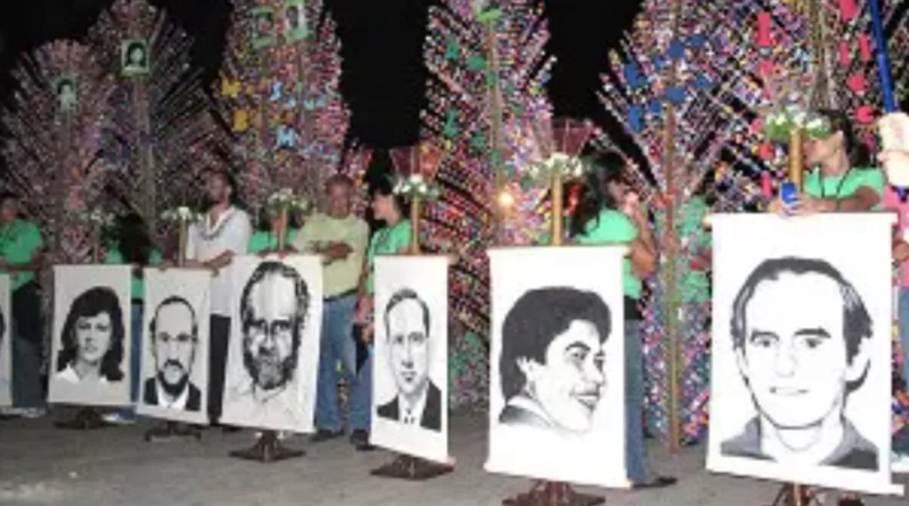
Who Is Accused Now, And Why This Trial Is Different
Alongside Cristiani, prosecutors have charged lawyer Rodolfo Parker, a former Christian Democratic Party legislator. Both men’s whereabouts are currently unknown, EFE reported. Other named defendants who have yet to face the court include Joaquín Cerna, Juan Rafael Bustillo, and Juan Orlando Zepeda, all linked to the military high command at the time. Retired officers Rafael Humberto Larios, Carlos Camilo Hernández, Nelson Iván López, Óscar Alberto León Linares, and Manuel Antonio Ermenegildo Rivas Mejía round out the list.
The focus on alleged intellectual authors reflects a shift in how the UCA community and international jurists have long understood the massacre: not as a rogue, heat-of-battle act, but as a deliberate operation meant to “decapitate” a critical voice. Under contemporary human rights law, crimes of this magnitude require that responsibility rest on those who planned and ordered them, not just those who carried out the orders.
By concentrating the reopened case on authorship and cover-up, the court has, at least in theory, created the space for a more honest accounting. It could examine the broader context: how the army saw the Jesuits, what conversations unfolded in barracks and presidential offices, and why the decision was made to leave two women dead alongside the priests. It could probe not just the night of November 16, but years of repression that made such an act possible.
The question is whether the court will be allowed, or compelled, to use that space. So far, the silence has spoken louder than the charges.
Punishment Abroad, Parole at Home, and the Road Ahead
In the three and a half decades since the murders, justice has arrived in fragments, some in El Salvador, some in Spain, none quite adding up to a complete reckoning.
Only one Salvadoran officer, Colonel Guillermo Benavides, served a significant time for the crime. He was sentenced to 30 years and jailed, then freed in 2015 when the country’s Amnesty Law was still shielding war-era crimes. After the law was repealed, a court ordered him back to prison, and in 2017, the Legislative Assembly denied his request for clemency. In 2019, the Supreme Court rejected his bid for sentence commutation, affirming that the Jesuit killings were crimes against humanity, EFE recalled.
Then, in November 2022, a San Salvador court granted Benavides early conditional release, citing his age, over 60, and the fact that he had served a third of his sentence. For many, it was a gut punch. Decisions from the country’s highest courts had acknowledged the atrocity’s gravity; yet the only man firmly convicted at home walked free.
Spain provided a different path. In 2020, Spain’s Audiencia Nacional convicted former vice minister of public security Inocente Orlando Montano and sentenced him to 133 years and four months for his role in the massacre. He is serving that sentence in Spain. The contrast is stark: a foreign court delivering a heavy punishment for a Salvadoran crime, while the domestic system has yet to put alleged intellectual authors on trial.
That dissonance is what makes the current limbo so troubling to survivors and advocates. As EFE’s reporting underscores, this is the first time a Salvadoran court has configured a case that mirrors the complete chain-of-command narrative long advanced by the UCA and human-rights groups. The stakes are high: not just for the defendants, but for El Salvador’s claim that it can confront its past on its own soil.
With Father Tojeira gone, the mantle of pressure shifts more fully to institutions and the broader UCA community. They are pushing for what should be basic: a schedule of hearings, visible efforts to locate fugitives, transparent rulings on motions, and movement, any movement, that shows the case has not slipped back into the long sleep that has swallowed so many war-era files.
Three decades on, the murders of six priests and two women remain more than a chapter in history books. They are a living test of El Salvador’s democratic spine. As families gather again at the memorial garden on UCA’s campus, the names of the dead ring out each November. The open question, as EFE’s anniversary coverage makes clear, is whether a courtroom will ever echo with accountability to match that memory, or whether, once again, the calendar will close the case by outlasting it.
Also Read: A Leaked Memo, a State of Emergency, and Venezuelan Lives on Edge in Trinidad and Tobago


